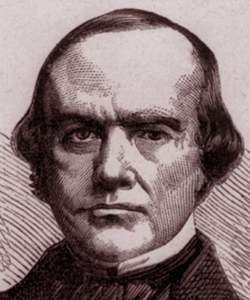Benjamin Robbins Curtis (American National Biography)
Scholarship
One of two dissents in Dred Scott, Curtis's opinion challenged Chief Justice Roger B. Taney and the Court majority by arguing that the black citizens of a state were automatically citizens of the United States and that Congress had complete constitutional authority to regulate slavery in the territories. Curtis rejected the argument that because Scott was a black he could not be a citizen. Claiming five states had recognized free blacks as citizens by 1787, he asserted that under the Articles of Confederation and then the Constitution, U.S. citizenship derived from state citizenship. Thus Scott was a citizen and entitled to sue in federal courts.
Curtis used English precedent, state law, and the Missouri Compromise to show that Scott's residence in Illinois and the Wisconsin Territory had made him a free man. In the process he defended the right of Congress to exclude slavery from the northern part of the Louisiana Purchase. As support for his argument he cited John Marshall concerning federal power over the territories and pointed out fourteen distinct instances of congressional legislation on slavery in the territories between 1789 and 1848. Contrary to Taney's majority opinion, he concluded, the Missouri Compromise line was constitutional and valid.
Curtis used English precedent, state law, and the Missouri Compromise to show that Scott's residence in Illinois and the Wisconsin Territory had made him a free man. In the process he defended the right of Congress to exclude slavery from the northern part of the Louisiana Purchase. As support for his argument he cited John Marshall concerning federal power over the territories and pointed out fourteen distinct instances of congressional legislation on slavery in the territories between 1789 and 1848. Contrary to Taney's majority opinion, he concluded, the Missouri Compromise line was constitutional and valid.
Robert C. Morris, "Curtis, Benjamin Robbins," American National Biography Online, February 2000, http://www.anb.org/articles/11/11-00202.html.



